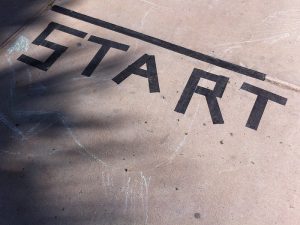Humor
Warning: Hacks for Hacks tips may have harmful side effects on your writing career, and should not be used by minors, adults, writers, poets, scribes, scriveners, journalists, or anybody.
You thought it was hard to focus during a global pandemic? You wondered how you were supposed to finish your book AND do your job (assuming you still had one!) AND supervise your kids’ education? Better gird those loins, friend, because summer vacation has arrived! While your kids’ teachers are getting some well-earned time to rest and panic about how they’ll survive another online semester, you’ve got to figure out how to meet your deadlines while keeping your kids from destroying your home out of boredom.
Will it be easy? No. But if you’re creative and resilient, you’ll be able to still meet your writing goals, be a good parent, and not catch a deadly disease. Here’s how to do it:
Warning: Hacks for Hacks tips may have harmful side effects on your writing career, and should not be used by minors, adults, writers, poets, scribes, scriveners, journalists, or anybody.
If you’re an aspiring writer, dealing with distraction is a big part of the routine. Between social media, your day job, familial responsibilities, and the once-in-a-century pandemic that has shut down the entire planet, it can be tough to focus on finishing your novel. These handy tips and tricks will help you knock out a few thousand words instead of dwelling on the few thousand deaths that occur every single day.
Set a daily writing goal. Having a manageable target word count can really help you focus on your craft instead of the scratchiness in your throat that’s almost certainly just allergies. Once a source of stress, your daily thousand words might now be the most peaceful part of your day until you finally tuck yourself in for six hours of fitful slumber and anxiety dreams.
Buy a new notebook and pen. Getting a new toy to play with is one of the oldest tricks in a writer’s toolbox. Something about a clean, white page in a notebook just seems friendlier than the blank, white screen on your word processor. Online shopping is one of the few pastimes remaining to us as we exile ourselves from our friends and loved ones (some of whom we may have already seen for the last time!), so yes, by all means, splurge on that fancy leather-bound journal.
Show, don’t tell. The triedest and truest piece of writing advice. Don’t tell us what something looks like, show us by using vivid details:
Make a writing playlist. If you enjoy listening to music while writing, the right playlist can really get your creative juices flowing! Create a thematic virtual mixtape to capture the mood of your book. Identify each character’s theme song, and see what it reveals about them. Or just pick a few tunes that make you feel good! The important thing is that you find as many ways as possible to keep your hands on your keyboard instead of touching your face.
Read MoreDISCLAIMER: This is not intended as a political post. At its core, it’s about writing, but it will likely reveal some of my political leanings along the way. Just remember, you can wash your hands after reading this. In fact, you should probably wash them *before* reading it, too. Go ahead. I’ll wait.
In early March, I had to fly to Atlanta for my day job. With the COVID-19 crisis looming, I was not enthused about flying into the world’s busiest airport. Armed with copious amounts of hand sanitizer and hopped up on supplements reputed to boost my immune system, I reluctantly boarded a plane at Palm Beach International Airport, idly counting the passengers wearing masks or gloves (fewer than half a dozen on this short flight).
A quick rewind: This was several days before the US had acknowledged COVID-19 as a Big Problem, and many were still unsure just how seriously to take it. I was leaning towards pretty darn seriously, aware that my age and damaged heart put me in a higher risk segment.
Arriving at the office, I doused my borrowed cubicle in Purell, keeping my ears alert for the sound of sniffles and sneezes and coughs – oh my! I was scheduled to stay for the week, but when Fulton County began closing schools due to a reported COVID-19 infection, I decided to cut the trip short. I had rented a car for commuting between the airport, hotel and office, so I arranged to keep the car and drive all the way back to my home in South Florida.
My coworkers gave me some light-hearted shaming about leaving early – particularly when they learned I was driving instead of flying – but I felt more and more sure it was the right move. I wanted to go home.
On the road again (or, still crazy after all these years)
I was looking at a minimum of a 10-hour drive, but wasn’t overly concerned. As a road-warrior touring musician in the 80s, I’d developed the ability to drive for hours on end without tiring. Plus, I had good audio books to listen to, and felt pretty familiar with the roads I would be traveling. But I was still in for a few surprises.
I made it through the dense Atlanta traffic, then settled in for a long drive through a region I’d spent countless hours traversing with a country band early in my career. I knew to expect an onslaught of South of the Border billboards as I neared the Florida state line (the world’s most overhyped rest stop, if you’ve never heard of it), but over the past three decades, some new “roadside attractions” had appeared.
Read More
Warning: Hacks for Hacks tips may have harmful side effects on your writing career, and should not be used by minors, adults, writers, poets, scribes, scriveners, journalists, or anybody.
Writers are hard-wired to be alcoholic shut-ins, but now that we’re required to stay cooped up in our homes due to the COVID-19 pandemic, we can start to feel a little claustrophobic. If you live in an area with a stay-at-home order, you can’t go browse the shelves at a bookstore, drool over fancy pens at Office Depot, or hope the cute barista notices you working on your novel at the coffee shop. This is a recipe for making writers go a little crazy. But never fear: you can maintain your sanity and help your writing by taking up a weird, obsessive hobby. Here are some popular options:
Baking bread. Make yourself a sourdough starter by combining flour, water, yeast, and a week of neglect as you let it rot in a jar on your kitchen counter. Sourdough is a popular loaf among writers, for whom letting a project linger until it starts to smell funny is second nature.
Writing your secret project under a pen name. Now’s your chance to work on the thing you’ve had in the back of your mind but never had the courage to try. The one you’re scared to read at your writers group. You know the one I mean.
Cooking. When telling people how you’re spending your days under quarantine, saying “I like to cook” makes you sound way more cultured and interesting than “I like to eat.” But realistically, you’re not going anywhere, and your favorite restaurants are closed. You may as well get good at cooking. But more importantly, it’s your opportunity to start your recipe blog! Just mix one cup of culinary skill, twelve ounces of beer (hee hee!), and 1,000 words about a fancy hamburger you ate on vacation one time.
Disinfecting your collection of pens. One by one, then sorting them by size.
Learning magic tricks. I’m a natural—I’ve figured out how to make all my snacks disappear! Ha ha! But in all seriousness, everyone should have a cool party trick, and learning even a small feat of close-up magic will keep your brain humming, give you a sense of satisfaction, and make you a hit the next time you’re invited to a party, probably two years from now.
* sense of humor required
Warning: Hacks for Hacks tips may have harmful side effects on your writing career, and should not be used by minors, adults, writers, poets, scribes, scriveners, journalists, or anybody.
For years, you’ve thought to yourself, “If only I had more time, I could write a bestseller for sure!” The good news is your prayers have been answered. The bad news is they were answered by the God of Unintended Consequences. But the finger of the Monkey’s Paw has already curled, and I’m afraid we’re now stuck inside during the Coronavirus pandemic with no company but our thoughts, the blank whiteness of the word processor, and thousands of distractions including (but not limited to) TV, movies, books, and the abject terror of whether you’ll live long enough to finish any project you start.
At a time like this, writing may seem daunting, or not all that important given what’s happening in the world. However, being a writer gives you the freedom to work when you’re at home, and the ability to feel inadequate about your significance anywhere, so you really have no excuses.
Maintaining Perspective
People are suffering and dying, but the important thing is to make this moment about yourself and your writing career. A pandemic is like a really long writing retreat, except you can’t leave, and you don’t know when (or if!) you’ll see your friends again. Whether you’re social distancing, officially quarantined, or just deeply unpopular, you’re already doing the retreat part, so you may as well do the writing, too.
Setting Goals
They say Shakespeare wrote King Lear during the plague. This is not inspirational; this is the baseline. Shakespeare didn’t have wifi. With the tools you have at your disposal, and with the abject terror you have as motivation, you should expect nothing less of yourself than to create an artistic masterpiece that high school English students will write formulaic essays about for the next several hundred years.
Some people like to start with small, attainable goals and expand from there, but I recommend the opposite: set your objectives as high as possible, then watch them wither away as you check Twitter for the hundredth time to see a fresh dose of bad news. I don’t know if this is a productive approach, but it is astonishingly easy to execute.
Read MoreWarning: Hacks for Hacks tips may have harmful side effects on your writing career, and should not be used by minors, adults, writers, poets, scribes, scriveners, journalists, or anybody.
You thought your story was ready to go. Sure, you ostensibly shared your story with your writing group so they could critique it, but on the other hand, shouldn’t they have recognized that their quote-unquote “feedback” would screw up your victory lap? How dare they slander your manuscript! Unrealistic characters? Boring exposition? Undecipherable symbolism? Yes, you may have written some elitist nonsense, but it was even MORE elitist of them to point that out!
For writers, these miscarriages of literary justice are as excruciating as they are universal. Like getting a vaccination, you should remind yourself that the pain you’re experiencing is fleeting, but ultimately it will make you stronger, and make you less likely to repeat the same mistakes in future works—mistakes like run-on sentences, infodumping, and not vetting members of your writing group more carefully.
So take a deep breath and gird your loins because I’m going to show you how to cope with a disaster feedback session.
Don’t argue.
Every reader is allowed to have their own opinion (check your writers group guidelines just to be sure, however). If a reader doesn’t like your story, that doesn’t make them wrong, it only makes them incorrect. When your story gets published, you can’t go to each reader’s house and explain things to them every time they misunderstand a plot point, so why would you think it’s a good idea to do so with your writing group? It’s a much better use of your time to nurse your grudge and shame them on social media when you finally sell your story to a publisher.
Read More
Warning: Hacks for Hacks tips may have harmful side effects on your writing career, and should not be used by minors, adults, writers, poets, scribes, scriveners, journalists, or anybody.
With so much writing advice freely available, how do you know what advice to take? You could try lots of different tips and tricks and see what works for you, or you could simply look at this list of the very best, which is heavily researched and absolutely definitive.
Top 10 Pieces of Writing Advice
10. Keep a journal. Whether it’s a diary or morning pages, journaling is like calisthenics for your brain. It’s a low-stakes method to flex your creative muscles, as well as a wonderful excuse to buy fancy notebooks and pens.
9. Read your work out loud. You’ll be amazed how many mistakes you catch this way. Reading your work aloud engages a different part of your brain, the part that cringes at the sound of your own voice.
8. Get comfortable with rejection. If you submit your work, it’s going to get rejected. Remember that this is not a commentary on you personally; it merely illustrates the reality that readers of that editor’s publication will not pay to read derivative crap from authors like yourself. Framing it like this numbs the sting, doesn’t it?
7. The BIC Method. I’m a big fan of the Butt In Chair method of writing—just sit your butt down and write!—because sitting down rules, and it makes the daily torture of writing more tolerable. If you’re in the same spot every day, the muse will know where to find you, at which point you can give her a piece of your mind about the lousy ideas she’s been pitching lately.
6. Wake up early. Nothing beats waking up at 5 a.m. for some quiet, solitary writing time! Whether you bang out 3,000 words, or fall asleep at your keyboard after barely a paragraph, you’ll have the satisfaction of knowing your work is done. Now the rest of the day belongs to you (and also your boss, spouse, and kids, but whatever).
Read MoreWarning: Hacks for Hacks tips may have harmful side effects on your writing career, and should not be used by minors, adults, writers, poets, scribes, scriveners, journalists, or anybody.
As 2019 draws to a close, many writers find themselves limping to the finish line. Stories unfinished. Manuscripts unsold. Goals unmet. Attitude: ennui.
Here’s what you’re going to do: You’re going to take the rest of the year off to lick your wounds. Then, when the new year begins, you’ll start fresh, your mind and body rested, your hopes sky-high, because next year is going to be different for some reason.
Warning: Hacks for Hacks tips may have harmful side effects on your writing career, and should not be used by minors, adults, writers, poets, scribes, scriveners, journalists, or anybody.
Congrats on submitting your manuscript! But the euphoria of finally sending your work to an agent or editor is quickly replaced by the anxiety over its fate. You poured a lot of hours and skipped a lot of TV to finish it, and some faraway gatekeeper could render that effort moot with a single email—or they could accept it and provide you with the validation and recognition you surely deserve. You thought writing was tough? Now you get to live with the agony of ambiguity one second at a time for the next 120 days or so.
You don’t have to live like this. A watched pot never boils, and a fixated-upon manuscript submission never gets a response. I came up with that ultra-catchy saying while waiting to hear back from an editor about a story. I felt so good about putting my nervous energy to good use that it barely stung when the editor sent me a form rejection letter. You too can experience this edifying feeling by employing these handy suggestions on how to spend your time when waiting for a publication decision.
Read More
Warning: Hacks for Hacks tips may have harmful side effects on your writing career, and should not be used by minors, adults, writers, poets, scribes, scriveners, journalists, or anybody.
I do almost all of my reading via audiobook. It’s a great way to turn a boring activity like driving or dinner with the family into a thrilling escape to a fantasy world. The surging popularity of audiobooks, combined with the fact that every artsy dilettante already has a USB microphone from their failed attempt to start a podcast, has made the role of audiobook narrator one of the most coveted jobs in literature.
As long as there are artistic professions, there will always be untrained wannabes who think they can succeed with minimal effort. And where there are wannabes, you can be sure there are irresponsible articles like this one about how to break into the narration racket. Let’s begin!
What You’ll Need
Preparation
Warning: Hacks for Hacks tips may have harmful side effects on your writing career, and should not be used by minors, adults, writers, poets, scribes, scriveners, journalists, or anybody.
All books must end—some before they’re finished. Writing a book is hard, and no matter how experienced or successful you get, there will always be times you want to quit. Perseverance is a wonderful trait, but there comes a time in many authors’ lives when a project becomes an albatross that gets in the way of their artistic growth, and they would be best served by writing a different book.
The bond between you and your book is full of highs and lows, laughter and tears, just like any other codependent relationship. Deciding to move on with your writing life is one of the hardest choices you can make as an author, but it can also be the most liberating. The writing-advice columnist Code of Conduct prohibits me from deciding this for you, but it does allow (and encourage!) me to enable your questionable decisions. So if you feel stuck and need to cut ties with your work-in-progress, here are several approaches to breaking up with your book.
It’s not you, it’s me.
The most obvious, bottom-of-the-barrel approach. You are the author. The book is your work. Of course it’s you. You may have convinced yourself that “It’s not you, it’s me” worked on your high-school sweetheart, but your guilty conscience won’t let you get away with doing this to the memoir you’ve been toiling over for the last few years. You’re going to have to work harder than that to come up with a good rationale—but then again, if you were into hard work, you wouldn’t be abandoning this book, would you?
(Was that unfair? You bet it was. That was your book talking; books don’t like to get dumped, so it may tell you some things you don’t want to hear.)
Read MoreDo you ever get the feeling that a scene you’re writing, just isn’t going to work? That no one would ever act this way? That no one would ever believe this outcome?
Do you ever leave the questionable scene in any way because you need this event to happen for plot reasons? Do you jump through mental hoops to convince yourself, well, maybe this is believable?
Maybe no one will notice.
Let’s consider a hypothetical scene:
A man goes into a forest. For plot reasons, the man needs to die in the scene. The writer takes an easy way out and makes a tree fall on our young man, crushing him to death.
I know I’m not giving you much detail, but I suspect you are finding this a bit far-fetched already. What are the chances that, of all the trees in a forest, the tree right in front of our poor guy would be the exact tree that falls, precisely when the man walks by? And that he wouldn’t hear it and get out of the way? It’s a bit convenient. And incredibly unlikely.
It isn’t as if our character walked onto a logging site where someone was actively cutting down trees. There wasn’t a hurricane, tornado, or earthquake tearing through this forest. It wasn’t even windy. The tree just fell on him. Boom. Our guy is dead.
We can try to convince ourselves the scene is logical. Maybe we go back into the manuscript and lay down some foreshadowing about another tree that fell. We could note in an earlier chapter that a tree in that same forest looked unstable. But none of these poorly disguised breadcrumbs can mask the fact that this scenario just wouldn’t happen.
You are probably thinking that this is a ridiculous example. Who would write such a scene? Who would think they could get away with something so obviously implausible.
Ummmm, it was me.
I wrote a scene in a draft of my book where a man runs into a forest and a tree falls on him. (I’m turning red with shame as I write this.)
Every time someone read the manuscript, I held my breath, waiting for them to tell me the scene was terrible. I did all sorts of mental gymnastics convincing myself that under certain circumstances this might happen. Right? I needed him to die and that conveniently falling tree got the job done.
No one said anything.
All the while, my stomach was twisting in knots because I knew it wasn’t working. But I refused to listen to my gut.
Read MoreNotting Hill, that is.
As writers, we often draw our inspiration from a wide range of sources. Sometimes, those sources may be unlikely or counterintuitive. But the trick, I think, is to keep an open mind, and to stay receptive to inspiration from ANY source. Maybe that inspiration comes from Shakespeare. Maybe it comes from Margaret Atwood. Or maybe it comes from Hugh Grant. Stay with me on this, even if you’re not a fan of the floppy-haired actor.
On a recent Friday night, after a particularly stressful week that left me emotionally exhausted – and, I’ll admit, wondering what’s it all about, Alfie? – I suggested to my ESO (Extremely Significant Other) that we end our evening on a lighter note by watching (okay, re-watching) a nice breezy romantic comedy. After searching through my DVD shelves, which include a rom-com collection large enough to put the continued possession of my Man Card at considerable risk, we agreed on Notting Hill. Hey, don’t judge. You’ve got yoga and wine, or maybe scotch and cigars; I’ve got Hugh Grant.
The movie, a 20-year old rom-com classic that we were watching for the umpteenth time, served its purpose both dependably and admirably – in my case, lifting my spirits considerably; in her case, lulling her to sleep. All in all, a win across the board. But I took an added bonus from the viewing experience: I got inspired. Hence, this post.
Looking for opportunities to think bigger
Like many (if not all) of my fellow WU readers and contributors, I am always trying to raise my game as a writer. I tend to take a targeted approach to this, identifying weaknesses in my current writing style as well as opportunities to expand and improve said style.
Of late, one of my primary goals has been to amp up the emotional range in my writing. My stories historically have been fairly small in scale, and that smallness can extend into the emotional range that those stories explore. Sure, my characters find themselves happy or sad, or successful or threatened, but the range of those highs and lows is usually fairly conservative. I think this is a reflection of the conflict-averse path I often pursue in my own life, where I use my worrywart skills to avoid conflict rather than attack it head-on. Possibly a useful technique in real life, but it can result in muted fiction that fails to hit the extreme highs and lows that readers clearly crave.
I’m aware of this limitation in my writing, and that most of the conventional teaching on writing more powerful stories urges us to dig deeper, giving our characters bigger problems with higher stakes. In a reflective post I wrote last summer, I summarized this thinking with the self-imposed mantra to “go big or go home.” Our own Donald Maass is a strong advocate of this approach, and on a monthly basis he offers new ways for us to expand the emotional range and impact of our stories. (Thanks, Don!)
Bottom line: I’m now striving to think bigger when creating the conflict in my stories. But that made the inspiration I drew […]
Read More





















